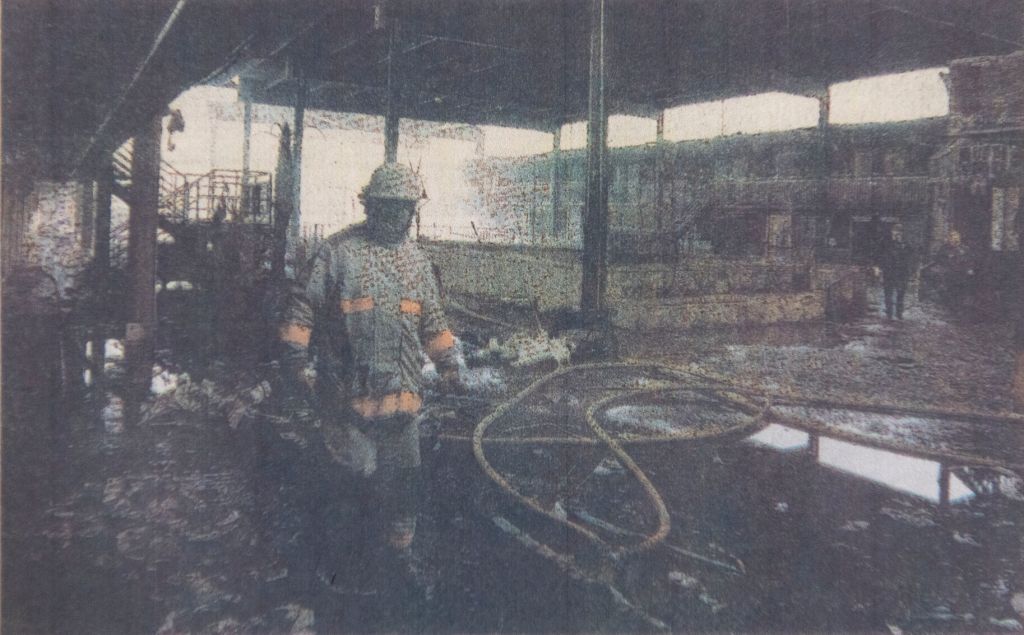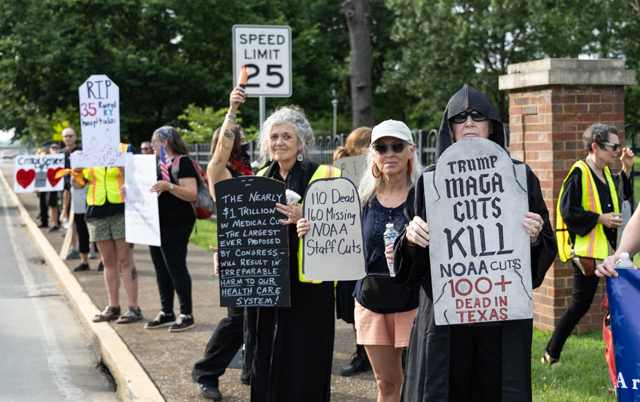Early release denied for man serving life sentence for deadly 1996 BG hotel fire
Published 6:00 am Saturday, July 6, 2024

- Bowling Green Fire Department Capt. Bob Jordan walks through the remains of the Howard Johnson hotel on the U.S. 31-W Bypass in 1996 after a fire that killed four people raged through the building.
A judge has denied compassionate release for a man who started a hotel fire in 1996 that killed four people.
Joe A. Logan Sr. is serving a life sentence after convictions of conspiracy and arson resulting in death.
Trending
Logan was a maintenance worker at Howard Johnson, which was co-owned by Suresh Kumar and his brother-in-law, Devinder Sharma.
At a 1997 trial in U.S. District Court, jurors found Logan and Kumar guilty of both counts.
Prosecutors presented evidence that the hotel was struggling financially, leading Kumar to offer Logan $3,500 to start the fire so the owners could collect a potentially lucrative insurance payout that could fund renovations.
The Jan. 6, 1996, blaze spread, however, resulting in 15 people being injured along with the four fatalities.
Kumar is also serving a life sentence.
Sharma was also charged, but fled the country and was never located, leading to the case against him being dismissed in 2013.
Trending
Logan, now 83 and incarcerated in a federal prison in Terre Haute, Indiana, filed a motion last year for compassionate release, citing his advanced age and deterioration in physical health due to a host of ailments.
Logan had filed a number of unsuccessful motions seeking a reduction of his sentence or compassionate release, with multiple filings coming after the passing of the First Step Act in 2018 that allowed criminal defendants to directly petition the court for compassionate release.
Previously, recommendations for compassionate release had to come from the director of the federal Bureau of Prisons.
One motion for compassionate release was denied in 2020 ruling by U.S. District Court Senior Judge Thomas Russell, who presided over Logan’s trial.
That ruling found that releasing Logan would minimize the serious nature of the crime, but it also included a finding from Russell that Logan presented “extraordinary and compelling reasons” for his early release due to his age and failing health.
According to court filings, Logan has been treated for prostate cancer, suffers from glaucoma, diabetes, kidney disease, blindness in one eye and several other ailments, relies on a cane and a wheelchair for mobility and requires assistance with some daily activities.
Logan in his most recent motion argued in paperwork filed with the federal court that he no longer posed a danger to the public and that, under federal sentencing guidelines in effect now, he would not have received a life sentence for his crimes.
Assistant U.S. Attorney Terry Cushing opposed Logan’s bid for compassionate release, arguing that despite his health conditions, a reduction in sentence would be unjust in light of Logan’s crimes, which Cushing said were “of the most serious type.”
“Even when a defendant is statutorily eligible for a sentence reduction based on an ‘extraordinary and compelling reason,’ compassionate release is not necessarily appropriate,” Cushing said in an April filing responding to Logan’s motion.
U.S. District Court Chief Judge Greg Stivers issued a ruling June 28 that denied Logan’s bid for compassionate release, while noting his eligibility for release due to his health conditions.
“Reducing (Logan’s) sentence would be unjust to the victims of his crime,” Stivers said in his ruling. “The seriousness of the offense also weights against his early release due to the loss of life and injuries to guests of the hotel at the time of the fire. Releasing (Logan) would undermine the seriousness of his actions and would not promote respect for the law.”






